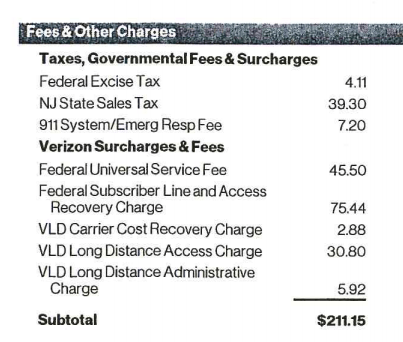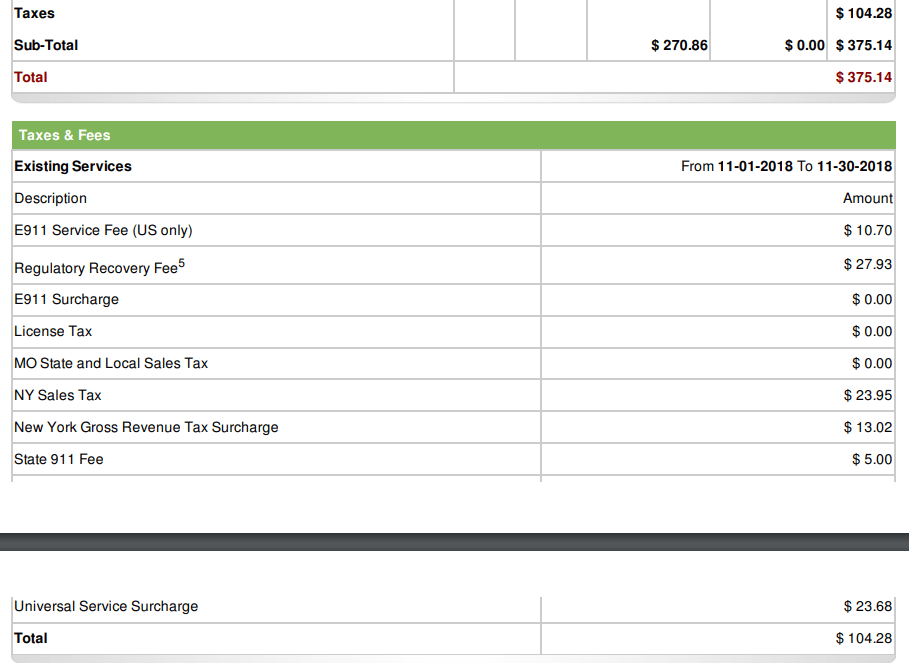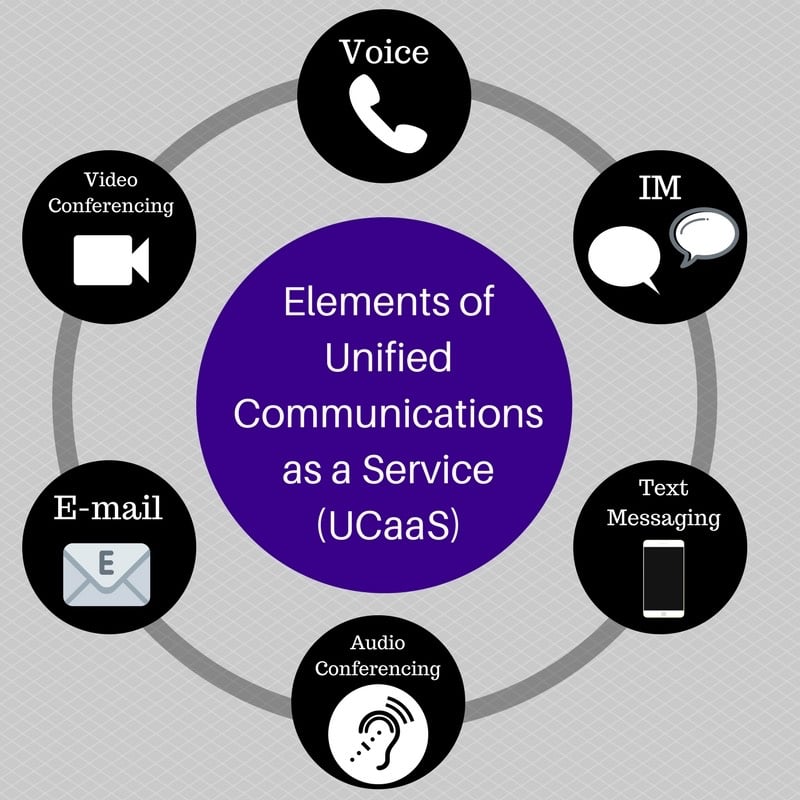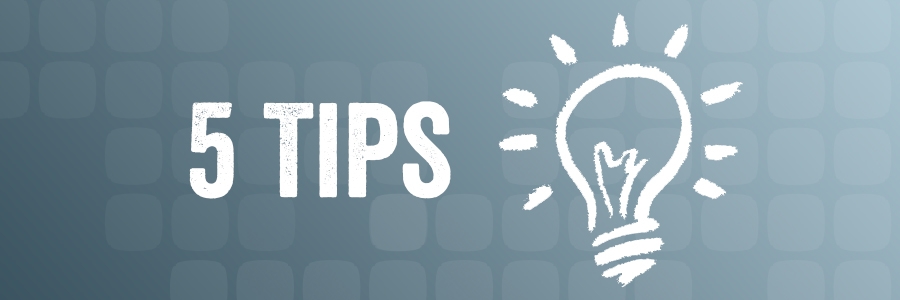Buyer Beware: Look Out for Hidden Fees from National VoIP Providers
If you’re an IT consultant, you know how important it is to offer quality recommendations when your clients ask about VoIP providers. After all, when you recommend a company that disappoints your clients, you also look bad. This is especially true when you recommend a provider that charges hidden fees, as your clients may feel that you’ve intentionally deceived them.
If you suggest any of the leading national VoIP providers, you should know about the taxes, fees, surcharges, and “other” charges clients routinely encounter on their invoices. These numbers should help you better understand what your clients’ monthly bills will actually look like with these companies.
1. Vonage
Vonage Invoice Example:

Service Charge Total: $1,781.00
Taxes, Fees, and Other Charges Total: $523.69 (Taxes: $272.11; Other Fees and Charges: $251.58)
Percentage Going to Taxes: About 11.6 percent
Percentage Going to Fees and Other Charges: About 10.7 percent
Some things to watch for:
- Regulatory, Compliance, and Intellectual Property Fee (RCIP Fee) - As stated on the Vonage website, the RCIP fee is not government-mandated. It’s a fee Vonage uses to cover certain costs associated with regulatory agency compliance, patent protection, trademark filing, copyright registrations, fraud prevention, and more.
-
- Cost: $3.99 per voice line, fax line, virtual number, toll-free number, and SoftPhone
- Emergency 911 and Information Services Fee - This is not a government-mandated fee but a Vonage-specific fee. It covers 911 service and unlimited 411 directory assistance.
-
- Cost: $1.99 per line (fax, voice, and SoftPhone); plans that don’t charge this fee are billed at $1.49 per 411 call
- Federal Program Fee - This fee recovers Vonage’s contributions to the Federal Communications Commission (FCC) and the federal Universal Service Fund (USF).
-
- Cost: As of April 1, 2019, the rate is 12.3 percent
- State-Specific Taxes and Fees - Certain taxes and fees are justified and unavoidable, and state-specific taxes fall under that category. Expect some of these fees from any VoIP provider. However, they should be up-front about these costs and include them in the initial proposal.
-
- Cost: Varies by state; in New Jersey, for example, state sales tax is 6.625 percent, and the state 911 fee is $0.90 per line
2. RingCentral
RingCentral Invoice Examples:

Service Charge Total: $452.83
Taxes and Fees Total: $178.06
Percentage Going to Taxes, Fees, and Other Charges: About 28.2 percent

Service Charge Total: $390.46
Taxes and Fees Total: $139.52
Percentage Going to Taxes, Fees, and Other Charges: About 26.3 percent
Some things to watch for:
- Compliance and Administrative Cost Recovery Fee (CRF) - As stated on the RingCentral website, this isn’t a tax or government-mandated fee. The charge recovers RingCentral’s costs associated with federal, state, and local filing requirements, subpoenas, civil litigations, protection of intellectual property, and more.
-
- Cost: Not specified on the RingCentral website, but the fee amounts to $3.00 per seat
- Federal Universal Service Recovery Fee - This fee covers RingCentral’s contributions to the federal Universal Service Fund, which offers telecommunication options at a reasonable cost to income-eligible consumers. Per the website, “RingCentral is permitted, but not required, to recover these costs from its customers.”
-
- Cost: Not specified on the RingCentral website
- 911 Fee and Emergency 911 Service Fee - These are two separate fees. The e911 fee (not government-mandated) covers RingCentral’s costs associated with providing 911 services; the 911 fee is a local government charge used to pay for services like rescue and fire.
-
- Cost: Not specified on the RingCentral website, but the 911 fee amounts to $1.00 per seat
- State, Local, and Provincial Taxes - These are government-mandated fees and vary according to your state, province, and municipality. VoIP providers have no control over these kinds of taxes.
-
- Cost: Varies
3. Jive Communication
For an idea of the fees, taxes, and surcharges added to a Jive Communications invoice, please see this report for the state of California: Breakdown of Services Taxes, Fees, Surcharges, and Surcredits Report.
Remember, many of these extra charges are state-specific, so the fees your clients are subject to (and the amount of those fees) will vary by state.
4. Nextiva
Some things to watch for:
- Regulatory Recovery Fee (RRF) - This charge offsets Nextiva’s costs associated with governmental inquiries, obligations, and related legal and billing expenses. It is not a government-mandated tax or fee.
-
- Cost: Not specified within Nextiva’s terms and conditions or website, but the RRF amounts to $3.25 per line
- Enhanced 911 (E911) - This charge offsets Nextiva’s costs associated with funding the infrastructure that supports various aspects of emergency services.
-
- Cost: Not specified within Nextiva’s terms and conditions or website, but the E911 fee amounts to $1.00 per line
- Universal Service Fund (USF) - This fee covers Nextiva’s contributions to the federal Universal Service Fund, which offers telecommunication options at a reasonable cost to income-eligible consumers.
-
- Cost: Not specified within Nextiva’s terms and conditions or website, but the USF amounts to 17.4 percent
For a full discussion of Nextiva’s terms and conditions, read here. Section 10 addresses “Fees and Charges.” Read here for a discussion of taxes, surcharges, and fees, including state-specific numbers.
5. Verizon
Verizon Invoice Example:

Service Charge Total: $702.58
Taxes and Fees Total: $211.15
Percentage Going to Taxes, Fees, and Other Charges: About 23.1 percent
Some things to watch for:
- Regulatory Recovery Fee (RRF) - This charge offsets Verizon’s fees associated with the Federal Communications Commission (FCC). It is not a government-mandated tax or fee.
-
- Cost: Not specified on the Verizon website
- 911 Surcharge and 911 Emergency Service Fee - This offsets Verizon’s costs associated with providing emergency services.
-
- Cost: Not specified on Verizon’s website, but it’s either charged per telephone access line or as a percentage of revenue
- Federal Universal Service Fund (USF) Fee - This fee covers Verizon’s contributions to the federal Universal Service Fund, which offers telecommunication options at a reasonable cost to income-eligible consumers.
-
- Cost: Not specified on Verizon’s website, but it’s not charged to Lifeline customers
- Federal Access Recovery Charge - This surcharge offsets Verizon’s costs related to various federal, state, and local regulations.
-
- Cost: Not specified on Verizon’s website
- Federal Subscriber Line Charge - This surcharge offsets Verizon’s costs related to reimbursement to long-distance companies.
-
- Cost: Not specified on Verizon’s website, but the charge applies to each phone line
- Fios Digital Voice (FDV) Administrative Charge - This monthly line charge offsets Verizon’s cost of providing voice services. It is not a government-mandated tax or fee.
-
- Cost: Not specified on Verizon’s website
Per Verizon’s customer agreement:
“Our charges may also include Federal Universal Service, Regulatory and Administrative Charges, and we may also include other charges related to our governmental costs. We set these charges; they aren't taxes, they aren't required by law, they are not necessarily related to anything the government does, they are kept by us in whole or in part, and the amounts and what they pay for may change.”
6. 8x8
8x8 Invoice Example:

Service Charge Total: $270.86
Taxes and Fees Total: $104.28
Percentage Going to Taxes, Fees, and Other Charges: About 27.7 percent
For a full discussion of 8x8’s terms and conditions, read here. Section 2.3.1 deals with the “Customer Subscription Commitment,” Section 6 discusses “Taxes,” and Section 7 covers all “Billing and Payment” issues.
Per 8x8’s invoice:

The most frustrating thing about these taxes, fees, and surcharges is that clients can’t do anything about them because they’re stuck in contracts. Customers agree to these charges when they sign a company’s terms and conditions (you know, those long documents full of fine print that nobody reads).
There’s nothing more disheartening than getting a quote from a company, agreeing to the stated price, and receiving an invoice significantly higher than the agreed-upon number. The leading national VoIP providers seem to practice this deception across the board.
As an IT consultant who routinely makes recommendations that reflect on you, it’s important to know that some VoIP providers are committed to pricing transparency. At TeleCloud, we don’t add mystery surcharges that aren’t mandated by federal, state, and local governments. We find this keeps our clients – and our IT partners who recommend us – happy. Interested in learning more about our VoIP pricing? Contact us today by clicking the button below.



